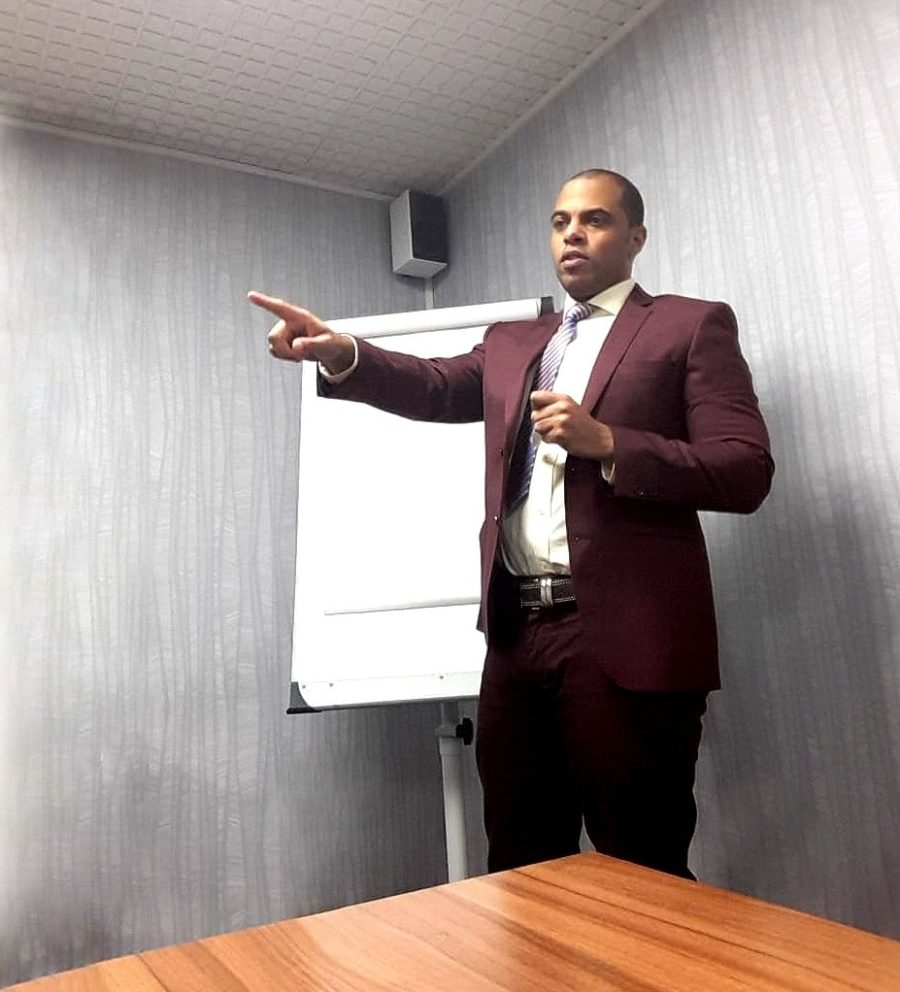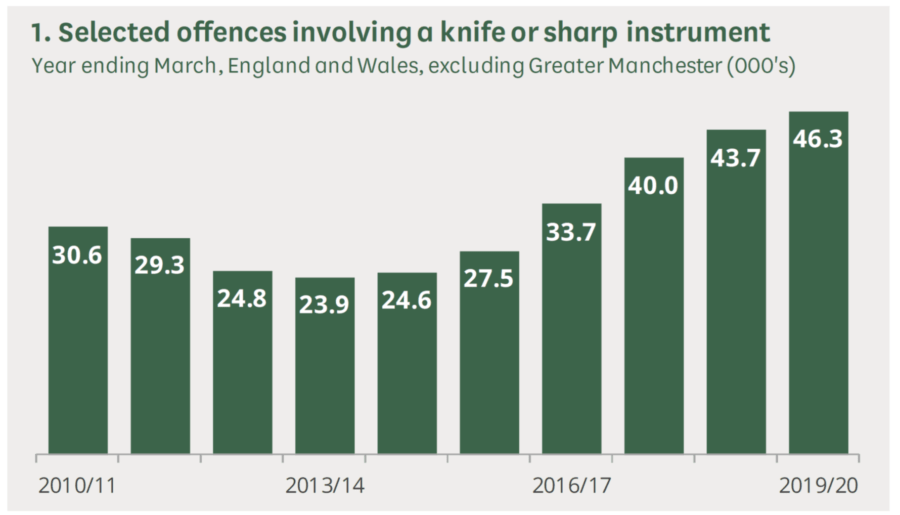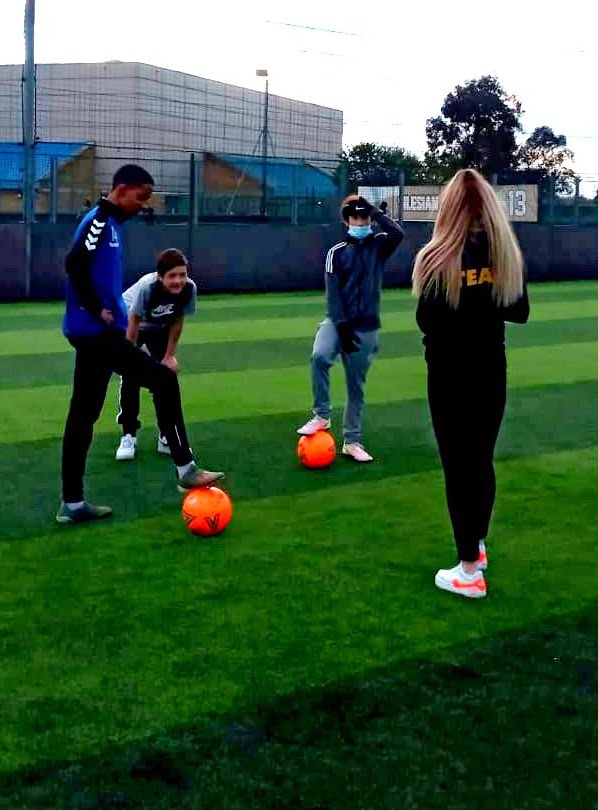On a quiet street in Barking, shortly before 3:45PM on Friday 12th March 2021, a 16-year-old male student was stabbed and seriously injured.
As a result of the incident, he sustained life-changing injuries.
On Saturday 13th March 2021, a 15 year-old male was arrested on suspicion of attempted murder.


I was on my way to Ilford when I got a message through the WhatsApp group chat about the incident.
I was in my car and, by coincidence, I was very close to where the incident happened.
After reading the message, I was overcome with sadness, not just because one of my team members had mentored him before, but because I had personally met the victim last summer. He seemed to be a nice person from a great family and he had a wonderful personality. I was hoping he wasn’t part of the whole gang situation.
I remembered the last time I saw him, when I had hoped he was going to survive through his teenage years and succeed in life. I found out later that I also knew the perpetrator.
At LifeLine, we care a lot about the young people we work with. This incident was very personal to me and the team.


As a team, we arranged for the outreach team to go the area where the incident occurred. We wanted them to find out from chatting with the young people in the area why this happened. They went down there but unfortunately they couldn’t get much information. The outreach team immediately supported the young people as much as they could though. It took us the good part of a day to string together details and find out what really happened.
As we have staff stationed in all the local schools and run numerous positivies activities for at-risk young people, we knew there was a good chance we would know someone connected to the victim or the perpetrator.
We discussed this in the team meeting, looked at new crime trends and any new gang activity in the area. Some of the team were given specific tasks in collecting information so we could understand the situation better. We mapped out who had the strongest relationships with the young people involved and tasked them with speaking to the victim’s friends and encouraged to convey the message of forgiveness and not to take the law into their own hands.
We did try to find out what linked the victim to the perpetrator, but nobody knew the details. What we do know is that the gang situation in outer London boroughs is increasing and the gentrification of boroughs like Hackney and Newham is only pushing the gangs problems further out.
Two of our Champions Support Network Coordinators offered their support to the victim’s family and have provided intensive support to the mother throughout the incident. The Coordinators and our Youth Development Workers worked closely to provide the best level of support to the whole family. Both teams truly focused on meeting the need in front of them and putting the family first.
Afterwards, the team was very sombre and subdued; many of us were friends with the victim. We drew together the victim’s friends that we knew and created a space for them to share their feelings about the incident and gave them the opportunity to reflect and learn. Some of them felt that they could see something like this happening to them if they continued as-is.
In our last mentoring session a few weeks prior, the victim said he felt like he was falling into bad company again. He was also taking part in social media, mocking other young people. He felt that where he lived forced him into doing some of these things. It’s such a shame.
As a team, we are always learning new things from every incident that occurs around us. We end up changing and adapting in how we work. We’ve learnt how to improve our message and how to communicate this to young people. As our programmes become more effective, the schools now approach us to speak to their young people. They see that our experience and what we’ve gone through as individuals and as an organisation will be a benefit to their young people.


I was texted about the incident within the hour of it happening. The Engagement Officer at the East Area Gangs Unit, part of the Metropolitan Police, reached out to me. Straight away, I messaged the Youth Development Workers on our group chat on WhatsApp.
A lot of the team already knew the victim as we had previously been mentoring him. We had to keep our heads up. Our main task was to support the young people and try to prevent any more conflict. It’s taken us a long time to build up the trust we have with these young people. Now we had the extra pressure of communicating to the young people without lecturing them. We did this by asking questions and listening. Did they understood the seriousness of the incident? Did they know how to escape the gang lifestyle? Did they think about an alternative future?
We knew an incident like this would create a ‘window of opportunity’ for some young people to make key choices that would affect their future. We are keen to use moments like these to encourage them to take a more positive path.
Usually when I get informed about incidents like this, I cross my fingers and hope, “Please, don’t let this be one of the young people that we’re mentoring.” This time, we knew him. I was worrying and hoping the injuries weren’t going to be too serious. I knew the location well as I’ve done a lot of outreach work there. A member of our team is currently based in the school very close to the location of the incident. It felt so close to home.
I personally knew the victim and, when it’s a student you know,, you try to reach out as much you can to all the people and all the links you share with them. You make sure their friends and family get as much support as possible.
I contacted the victim’s best friends and offered our support. I also wanted to find out from his friends and family if they knew why he was at that location at that time and if they knew what the motivation behind the attack was. Understanding the situation better will always make the support you offer a lot more effective.
As part of the supervision, we all supported each other. Everyone was encouraged to speak to their colleagues and managers. Guidance was offered to any staff member that asked for it.
We discussed what we could do to stop incidents like this happening in the future. There isn’t a simple answer or a simple solution to that question. The young people we work with are products of their own personal environment. They are looking for a quick fix for their complicated problems. These days, it’s an easier choice to join a gang than not to.
But our job is to provide the young people with an alternative and to create a hospitable community they can belong to.




It started off as a very normal day for me. As usual, I was working in school mentoring young people. Then, at 4.40pm, Alex sent out a message about the incident through the work chat group we have on WhatsApp. With this situation, I was taken aback. I couldn’t imagine this happening to any of the students I’d worked with. This was right next to school I was working in. In my previous job, I worked with youth offenders in prison, where I’ve seen a lot of violent things happen. The difference is in prison you know the situation and motivation for an attack. Outside prison, it can be literally anything. In my experience from working in the community, it has a lot to do with gangs.
Our response was to delegate two members of the outreach team to be our local eyes and ears on the streets. They spent their time looking into the details of the incident. Both the victim and the accused assailant went to the school I work at. As a team, we talked a lot about that and what exactly did happen in the incident. We also knew it was important to keep our young people safe and make sure they were aware of the support we offer especially our gang awareness and personal safety workshops.
We also intensified our support in the school, working closely with the pastoral staff in the aftermath. In the day following, we also ran some additional workships for the school that addressed some of the themes we had identified in our mentoring sessions.
The impact on the young people was quite negative. We tried to overcome this by encouraging the young people to approach us and share their concerns. We talked, we listened, discussed their future and tried to persuade them to sign up for our workshops.
From my work history and from some of the training I’ve received at LifeLine, I do feel prepared for serious incidents. As an organisation, I believe that we respond well to incidents and are very supportive to the community.




Visit our Vacancies page to see the latest opportunities to become part of the LifeLine team.